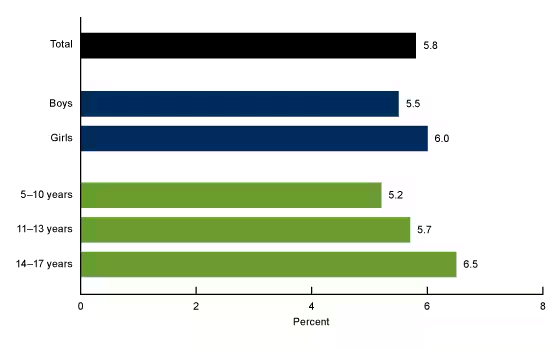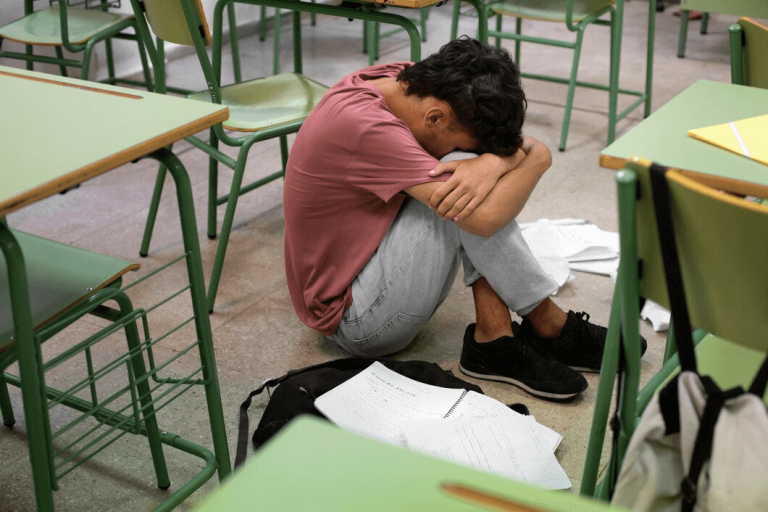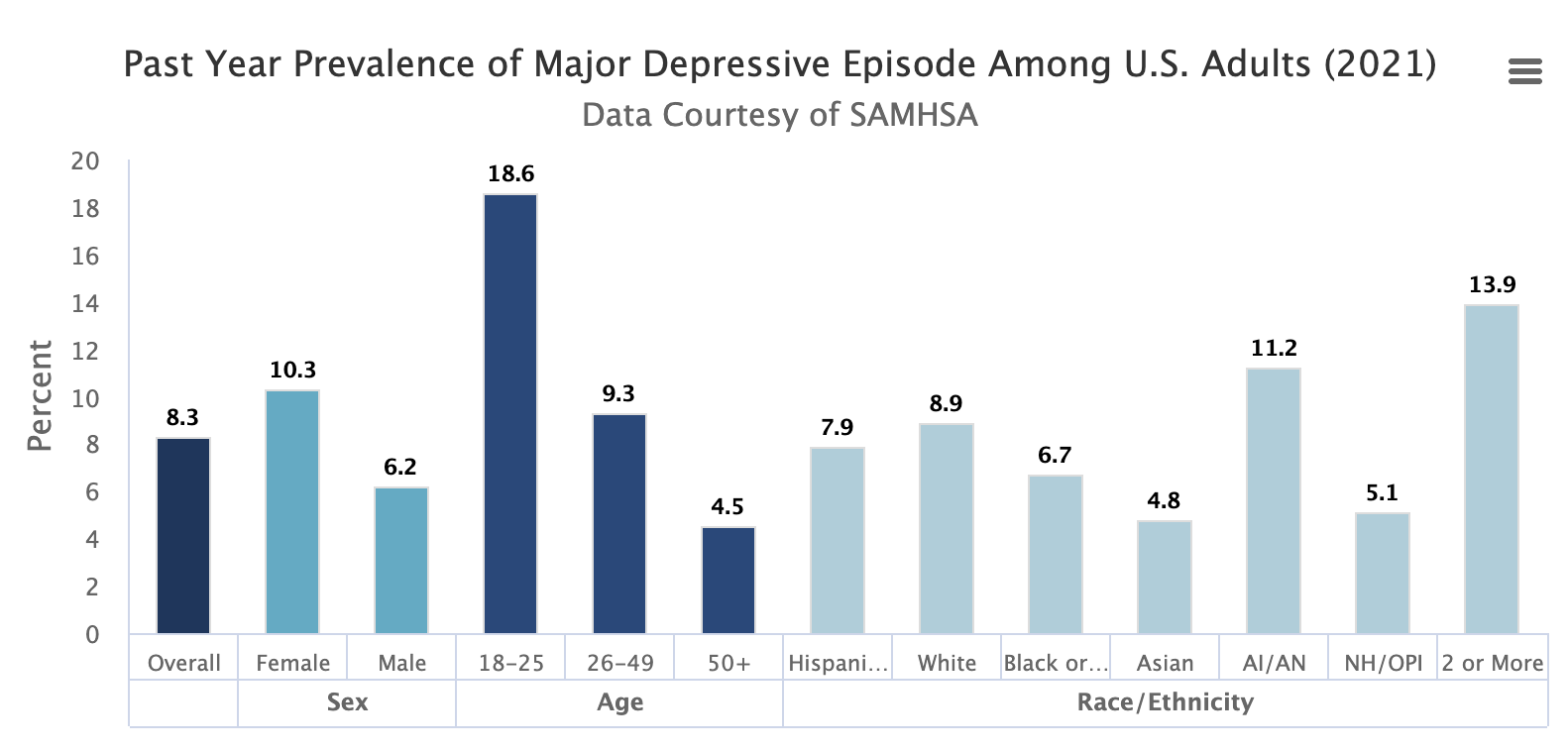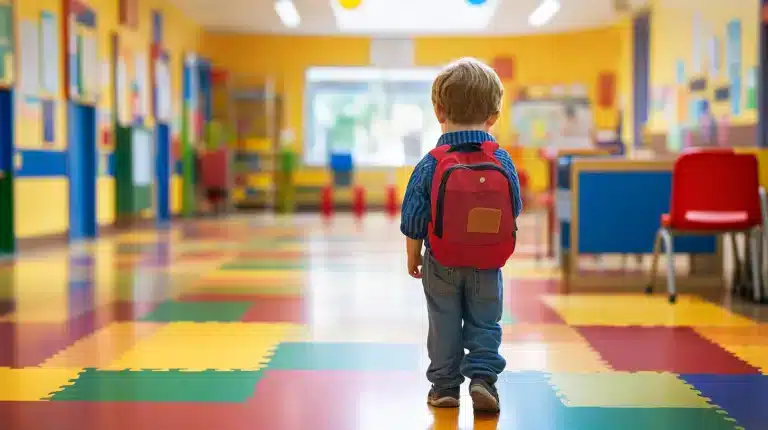The short answer is yes.
In recent years, adolescent depression has emerged as a critical public health issue. Reports state that five million adolescents aged 12 to 17 in the US have had at least one major depressive episode. This represents about 13 percent of this age group who are grappling with significant mental health challenges.
Moreover, studies indicate that depression in adolescents is strongly linked to various educational and social outcomes. Early intervention becomes crucial as symptoms of depression often manifest that directly impact an adolescent’s ability to engage in academic environments.
One primary example is school refusal, and it’s why there are school refusal support programs designed for adolescents.
What Are Adolescent School Refusal Support Programs?
For adolescents dealing with depression, the mere thought of school can trigger profound feelings of hopelessness and fatigue. It’s why even completing attendance becomes a daunting task. School refusal support programs address these feelings. They provide a supportive environment where students can express their fears and challenges without judgment.
Adolescent school refusal support programs are structured interventions designed to assist young individuals who experience anxiety or emotional distress about attending school. These programs aren’t one-size-fits-all. They are aligned to meet the unique needs of each student, integrating psychological therapy, educational accommodations, and family support.
Best Practices for Addressing Adolescent Anxiety and Reducing School Refusal
School absenteeism can be either problematic or unproblematic. In 2022, 5.8 percent of children had chronic absenteeism, and the majority of the reason was due to health concerns.

The more extended the absence, the more critical it is for interventions to be thorough. For students away from school for a long time, their return must be gradual and include substantial support.
Here are some strategies to address the issue:
Early Intervention
Early intervention is critical in preventing anxiety and school refusal behaviors from escalating. When symptoms are identified early, interventions can be tailored more effectively to meet the student’s needs, potentially averting more severe complications.
Schools, along with mental health professionals, play a pivotal role in monitoring students and initiating supportive measures promptly.
Proactive strategies can include training for teachers to recognize signs of anxiety and depression, allowing for timely referrals to school psychologists or counselors.
This immediate response helps create a supportive environment around the student. This way, the school is a part of the solution rather than a source of stress.
Maintain Regular Communication
Open and consistent communication between the school, students, and their families ensures everyone is aware of students’ progress and challenges. This collaborative approach brings a sense of community and support, which is vital for students struggling with anxiety.
Regular check-ins matter because they allow adjustments to the support plan as needed. They also help build trust between the student and the support team, which is essential for a successful reintegration into the school environment.
Present Flexible Schooling Options
Flexibility in the schooling format can significantly reduce anxiety for students dealing with school refusal. Options such as part-time attendance, staggered return, or hybrid learning models can ease the transition without overwhelming the student. This tailored approach allows students to remain engaged with their education at a pace they can handle.
Moreover, these accommodations should be regularly reviewed and adjusted based on the student’s ongoing feedback and evolving needs. This adaptive strategy helps students feel they are in a supportive, responsive educational environment, which can enhance their motivation and engagement.
Provide Peer Support
Integrating peer support initiatives can provide significant emotional relief to students. Adolescent school refusal support programs connecting students with peers who have faced similar challenges can foster a sense of belonging. This support network can be instrumental in normalizing their experiences and promoting recovery.
Schools can facilitate peer mentorship programs where trained students offer support and guidance. These relationships reduce the stigma associated with mental health challenges and empower students by involving them in their community’s wellness efforts.
Extend Professional Support
Ensuring access to professional mental health services within the school setting is crucial. On-site counselors can provide continuous, readily accessible support, making it easier for students to seek help in a familiar environment. This constant availability helps manage crises and offers ongoing support to navigate school pressures.
These professionals can also collaborate with educational staff to create a comprehensive support network around the student. Such a process ensures that academic and emotional needs are addressed hand in hand. This approach supports the student and educates and involves the entire school community in fostering a supportive atmosphere.
Empower Adolescents for a Brighter Tomorrow
School refusal support programs offer more than just a way back into education. They are a means to provide a lifeline for adolescents grappling with depression and anxiety, helping them rebuild confidence and resilience.
These programs empower students to take control of their mental health and look forward to a hopeful future. Parents and educators should consider these programs not just as interventions but also as essential support systems that can transform lives.











